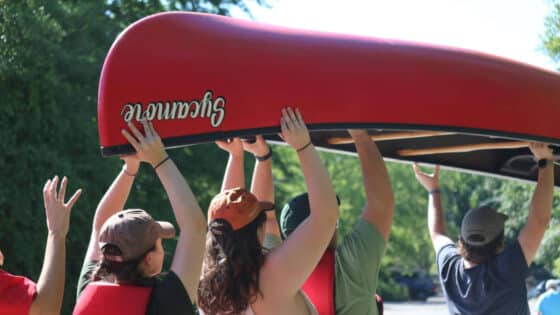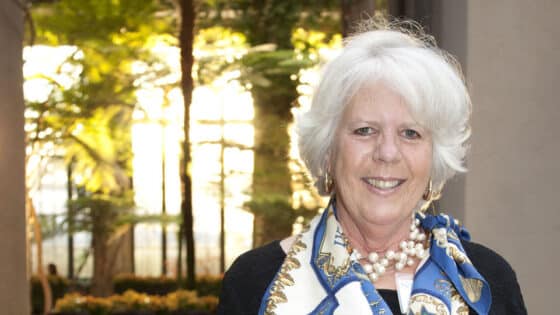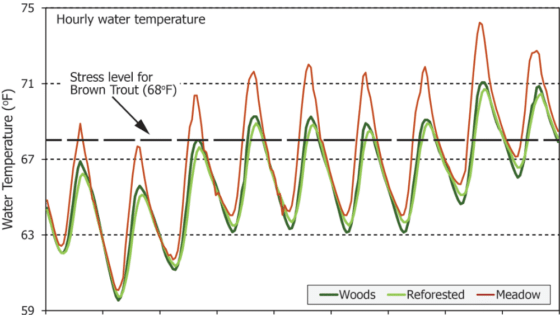Dear Friends,
Our annual fund appeals are usually filled with pictures of blue skies and smiling faces, but I think it’s important to know that, like the post office, “Neither snow nor rain nor heat nor gloom of night will keep Stroud Center researchers from the swift completion of their appointed stream sampling.”
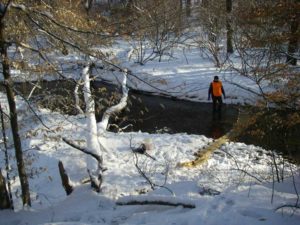
I share these seasonal snippets with you, because I want you to know how dedicated our scientists are all year long. This is why your financial support is vital to our work.
Remember all that snow from last winter? Well, we do. Stream ecosystems do not stop working just because it’s cold. We need to know how well fish and aquatic insects function, how well nutrients cycle, and how energy moves through ecosystems when temps are frigid. We also need to evaluate the impact from excess road salt when the snow melts and it’s washed into streams. Finally, many groups of aquatic organisms are active during the winter months, like stoneflies, which are pollution indicators.
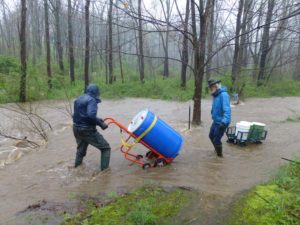
A very important part of our past and current research comes from measuring storms, and nothing brings our scientists out in full force more than a good, old-fashioned gully washer (hurricane flows). Because each catastrophic storm is unique, leading to differences in the chemicals and sediment entering streams from our homes, farms, and businesses, we learn something new by studying these high-magnitude storms. We need answers to questions like, how resilient are aquatic populations and ecosystems to floods? And, how effectively do our best management practices on the land protect streams during storms?
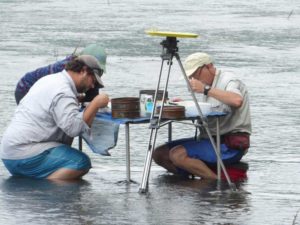
During this summer’s heat wave, our scientists could be seen examining samples in the Susquehanna River near Mehoopany, Pennsylvania in their bathing trunks. Sounds like fun, until you realize they are spending hours in the blistering sun. In large rivers, low flow usually occurs near summer’s end, which is the only time when it is safe enough to obtain samples.
The rainy season in Costa Rica is extreme. Mud can be very dangerous and difficult on the road leading to the Maritza Biological Station, our outpost in the Guanacaste region and the headquarters for our Central and South American freshwater research. This year was particularly bad, and the road is officially beyond repair. As we speak, the station is now only accessible by horse, which is not easy for our staff members who work there and need to reach the lab.
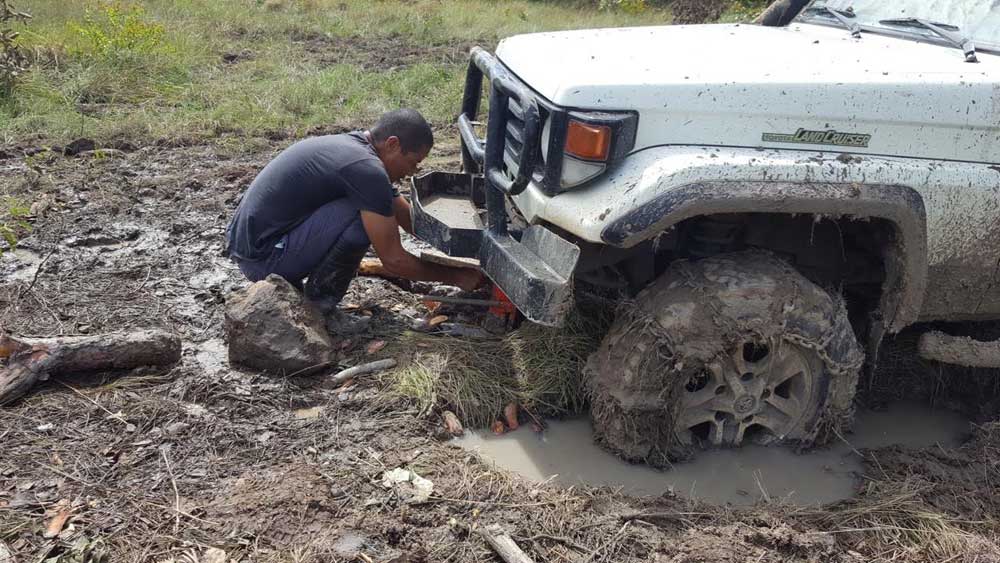
Our pursuit of clean fresh water never stops. I hope you will make a first-time gift or renew your generous support before December 31, as we need it all year long, we put it to very good use, and we like having you as a partner in our work for the future of fresh water.

Yours truly,
David B. Arscott, Ph.D.
Executive Director, Research Scientist

